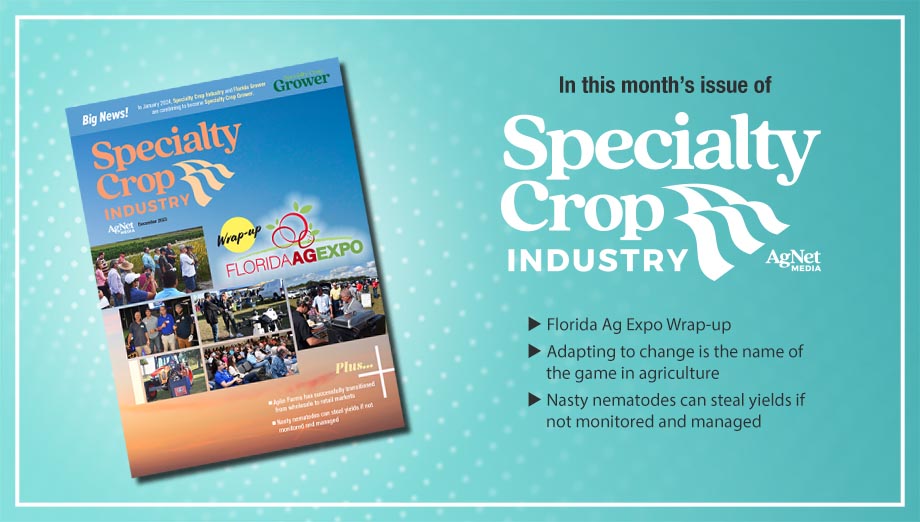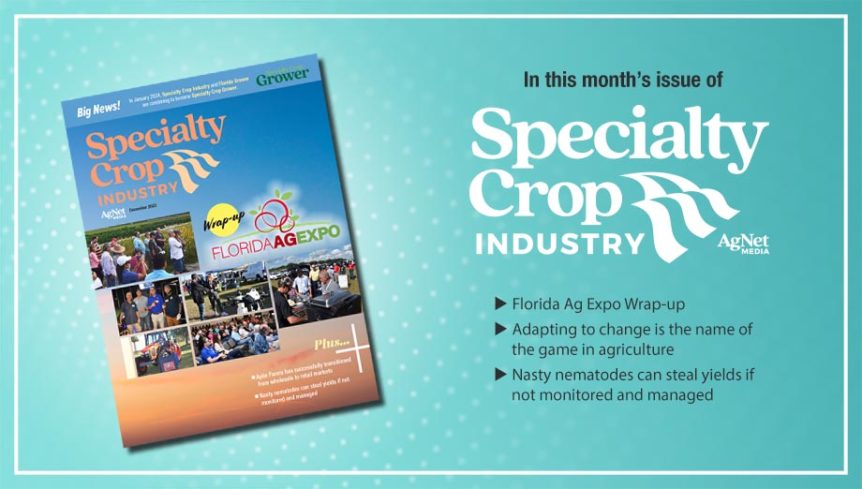
By Clint Thompson
The December issue of Specialty Crop Industry (SCI) Magazine recaps the Florida Ag Expo in Wimauma, Florida. This year’s show featured a tailgate trade show and field tour that highlighted the event at the University of Florida Institute of Food and Agricultural Sciences Gulf Coast Research and Education Center.
There was a general seminar session, featuring a grower panel. The four producers provided attendees with information about what’s working on their farms and what farmers can expect in the future. There were also breakout sessions that highlighted pest management and technological practices.
Also included in this month’s SCI is a feature on Aplin Farms in Dothan, Alabama. John Aplin, co-owner of Aplin Farms, discusses how his farming operation has adapted to the changing times which includes a change to his marketing strategy, transitioning from producing crops for wholesale markets to selling them directly to the consumer.
Frank Giles, Editor-in-Chief, highlights how nematodes can rob specialty crop producers of yields if they are not monitored and managed correctly. He focuses on plant-parasitic nematodes which causes $125 billion worth of crop losses every year.
Juan Carlos Diaz-Perez, professor at the University of Georgia Tifton Campus, talks about how climate change challenges vegetable production. Crops have specific optimal temperature ranges. Cool-season crops are more vulnerable to high temperatures than warm-season crops. Plant physiological activities can be impacted negatively above the optimal temperature range and could lead to plant death.
Heat stress strategies include grafting vegetables with stress-tolerant rootstocks, while conventional and molecular crop breeding can be implemented for heat resistance.










